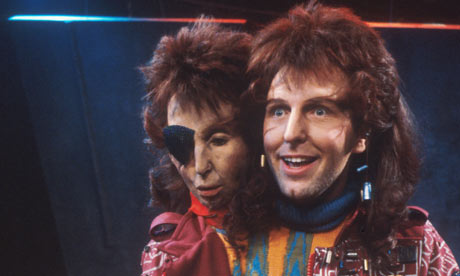
Curent Location: Minnesota
Member Since: March 2011
Current Gig: Senior Developer, Interactive at Public Radio International
Six-word memoir: Continuous Improvement Change Agent. Tech guru.
Favorite Tech Tool: There are so many to choose from! Let’s call it OmniFocus by the very smart OmniGroup folks. This is my go-to to-do system that is vital for my workflow. I use it to help me get things done, but more so, to get the right things done. I have tried countless to-do systems over the years — everything from Microsoft Outlook’s built in to-do list to 37signals Backpack, to your sturdy paper-and-pen Moleskin route. Nothing ever stuck till I got to OmniFocus. I use all three variations – desktop, iPad, and iPhone. Runners-up: Simplenote + Notational Velocity, Reeder (iPad), and TextMate.
Favorite fictional character: Zaphod Beeblebrox (he’s just this guy, you know?)
What happens during your average day?
I get up when our three kids get out of bed, eat breakfast … Oh wait. Do you mean at work? Well it really varies from day to day and that’s why I love it. I’m a tech guy – and have been for a long time – but one of the reasons I was hired at PRI was that I tend towards being more of a generalist than a specialist working in one narrowly defined area. So I do things like update our iPhone app and our web sites, but I also help with some project management, and have been shepherding along an innovation process we are building for capturing and elaborating on ideas.
What project have you worked on that you are most proud of?
The things I am most proud of are the things that were never official projects. Like saving a business $2,000 a month by re-architecting their servers, or building a bit of software “that couldn’t be built” to save four hours of manual data entry every week. Or building my first iOS app from knowing nothing about app development, to having it in Apple’s iTunes Store, in just three weeks.
Why did you choose to get involved with online media?
Online media is where all of the activity is happening! I love watching, learning and participating in the evolution of communication. Social media is influencing how we interact with each other, and the digital norms we establish now will have effects for decades to come.
You have this quote on your website:
“And let it be noted that there is no more delicate matter to take in hand, nor more dangerous to conduct, nor more doubtful in its success, than to set up as the leader in the introduction of changes. For he who innovates will have for his enemies all those who are well off under the existing order of things, and only lukewarm supporters in those who might be better off under the new.” —Niccolò Machiavelli, “The Prince”
Why does this quote speak to you?
You know, I put this up on my site when I was feeling more snarky about the world than I do today. But I think it still gets to a very important point that is often overlooked. Change is very very hard. I keep trying to convince my parents to get a new computer so they can make video calls with their grandkids. But the telephone works well enough, and a new computer is expensive. They’ll make the change eventually, but not on my timetable. It’ll probably happen when their old computer breaks. In all sorts of similar situations I find that change comes about from push events and you can’t pull people into something they are not comfortable with. This is frustrating, but you learn how to work with it.
How have you found ways to work around resistance to change?
The first thing you need to do is stop selling the features and advantages of the new thing. It rarely works and is a frustrating process for everyone involved. Find out what motivates your audience, who they trust, and what their stated and unstated goals are. The Heath Brothers have some great advice in their book, Switch: How to Change Things When Change Is Hard.
If you had a million dollars dedicated to improving media, you would…
Gosh, I don’t know. A million bucks doesn’t go terribly far these days. I’m fascinated by good infographics and how they tell stories. I’m curious to see what the norms will be established between journalism and social media. Perhaps the million could be used to break down some walls — get smart phones for journalists that don’t have them, and then training for those that don’t know how to use them. Training and resources for building good infographics? You know — just gentle little nudges to collectively move us farther down the path we are on.

Think you or someone you know should be the ONA Featured Member? Contact Latoya Peterson at lpeterson@journalists.org.
